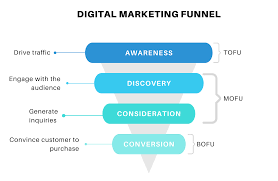A writer is someone who can transport you to a different time and place with just their words. They have the power to evoke emotions, inspire change, and entertain audiences of all ages. Writing is an art form that requires dedication, creativity, and a passion for storytelling.
The beauty of writing lies in its versatility. Writers can create anything from short stories to novels, screenplays to poetry, and even technical documents. They have the ability to craft compelling characters and intricate plots that keep readers engaged from beginning to end.
However, being a writer is not always an easy task. It takes time and effort to develop your skills and find your unique voice. Writing requires discipline and perseverance, as well as the ability to take constructive criticism and learn from it.
Despite the challenges that come with being a writer, there are many benefits as well. Writing can be therapeutic, allowing you to express your thoughts and feelings in a creative way. It can also be a source of income if you choose to pursue it professionally.
One of the most important qualities of a writer is their willingness to learn and grow. There is always room for improvement when it comes to writing, whether it’s learning new techniques or expanding your knowledge on different genres.
In addition to honing their craft, writers must also build their audience by sharing their work through various platforms such as social media or publishing houses. This requires strong networking skills and the ability to market oneself effectively.
Ultimately, being a writer is about telling stories that resonate with others. It’s about creating worlds that people can escape into and characters that they can relate to on a personal level. Whether you’re writing for yourself or for others, there’s no denying the impact that writing can have on both the author and the reader.
In conclusion, writers are essential members of society who use their creativity and imagination to bring stories to life. They possess a unique talent for crafting words into something magical that captures the hearts and minds of their readers. So, if you have a story to tell, don’t be afraid to pick up a pen and start writing. Who knows, you might just be the next great writer of our time.
9 Common Questions Answered for Aspiring Writers
- How do I become a writer?
- What type of writing should I pursue?
- How can I improve my writing skills?
- How do I get published?
- What are the best resources for writers?
- What is the best way to market my work as a writer?
- What is the salary range for writers?
- How can I find an editor or agent for my work?
- What are the benefits of being a professional writer?
How do I become a writer?
Becoming a writer takes time, dedication, and hard work. Here are some steps you can take to start your journey as a writer:
- Read widely: The first step to becoming a good writer is to read widely. Read books, articles, and essays from different genres and styles. This will help you understand different writing techniques and styles.
- Write regularly: Writing is a skill that requires practice. Set aside time each day or week to write something, even if it’s just for yourself. Start with small pieces and gradually work your way up.
- Find your niche: Determine what type of writing you enjoy the most and focus on developing that skill. Whether it’s fiction, non-fiction, poetry, or screenwriting, find what speaks to you.
- Take courses or workshops: Consider taking writing courses or workshops to learn more about the craft of writing. This will help you develop your skills and learn from experienced writers.
- Join writing communities: Joining writing communities such as writers’ groups or online forums can provide valuable feedback and support from other writers.
- Submit your work: Submitting your work for publication is an important step in becoming a professional writer. Start by submitting your work to literary magazines or online publications.
- Network: Networking with other writers, editors, publishers, and agents can help you get noticed in the industry.
Remember that becoming a writer is not an overnight process – it takes time and effort to develop your skills and build your career as a writer. Stay committed to the craft of writing, stay passionate about what you do, and keep learning along the way!
What type of writing should I pursue?
The type of writing you should pursue depends on your interests, skills, and goals. There are many different types of writing, ranging from creative writing to technical writing. Here are a few options to consider:
- Creative Writing: If you have a passion for storytelling and enjoy creating fictional worlds and characters, then creative writing may be the perfect fit for you. This can include genres such as fiction, poetry, and screenwriting.
- Journalism: If you have a strong interest in current events and enjoy researching and reporting on news stories, then journalism may be the right choice for you. This can include working for newspapers, magazines, or online publications.
- Technical Writing: If you have a talent for explaining complex ideas in a clear and concise manner, then technical writing may be the right fit for you. This can include creating user manuals, software documentation, or scientific reports.
- Copywriting: If you have a knack for persuasive language and enjoy creating marketing materials such as advertisements or product descriptions, then copywriting may be the right choice for you.
- Academic Writing: If you have an interest in research and enjoy exploring complex topics in depth, then academic writing may be the right fit for you. This can include writing research papers or scholarly articles.
Ultimately, the type of writing that is best suited to your skills and interests will depend on your individual strengths and passions. Consider trying out different types of writing to see what resonates with you most before committing to any one path.
How can I improve my writing skills?
Improving your writing skills is a process that takes time and effort, but it is definitely achievable. Here are some tips to help you improve your writing skills:
- Read: Reading is one of the best ways to improve your writing skills. It exposes you to different styles of writing, expands your vocabulary, and helps you gain knowledge on various topics.
- Practice: Writing regularly can help you improve your skills over time. Set aside some time each day or week to write about anything that comes to mind. You can write in a journal, start a blog or even write short stories.
- Get feedback: Ask someone you trust to read your work and provide constructive feedback. This can help you identify areas that need improvement and give you an idea of what others think about your writing.
- Learn grammar and punctuation rules: Having a good grasp of grammar and punctuation is essential for effective writing. Take the time to learn the rules and practice applying them in your writing.
- Use active voice: Using active voice makes your writing more engaging and easier to understand than passive voice.
- Keep it simple: Writing in simple language makes it easier for readers to understand what you’re trying to say.
- Edit ruthlessly: Once you’ve finished writing, take the time to edit your work carefully for spelling mistakes, grammar errors, punctuation errors, and other issues.
- Experiment with different styles: Don’t be afraid to experiment with different styles of writing such as poetry or screenwriting.
Remember that improving your writing skills takes practice, patience, and persistence. By following these tips consistently over time, you’ll be able to develop stronger writing skills that will serve you well in all aspects of life!
How do I get published?
Getting published can be a challenging process, but it’s not impossible. Here are some steps you can take to increase your chances of getting published:
- Write a great manuscript: The first step to getting published is to write a manuscript that is well-written, engaging, and polished. Take the time to edit and revise your work until it’s the best it can be.
- Research publishing options: There are many different publishing options available, including traditional publishing houses and self-publishing platforms. Research each option to determine which one is right for you.
- Find an agent: If you’re interested in traditional publishing, consider finding a literary agent who can help you navigate the publishing industry and find the right publisher for your work.
- Submit your work: Once you’ve identified potential publishers or agents, submit your work according to their guidelines. Be patient during this process as it can take several months to hear back from publishers or agents.
- Build a platform: In today’s digital age, having an online presence can be critical for getting published. Consider building a website or social media presence to promote your work and build an audience.
- Attend writing conferences and workshops: Attending writing conferences and workshops can be a great way to network with other writers and learn about the publishing industry from experts in the field.
Remember that getting published is not easy, but with hard work, persistence, and a little bit of luck, it’s possible to achieve your goal of becoming a published author!
What are the best resources for writers?
There are many resources available for writers that can help them improve their craft, gain inspiration, and connect with other writers. Here are some of the best resources for writers:
- Writing classes and workshops: Many universities, community colleges, and writing organizations offer writing classes and workshops that cover a range of topics from fiction to non-fiction, poetry to screenwriting. These classes provide valuable feedback from instructors and peers.
- Writing groups: Joining a writing group can be an excellent way to connect with other writers, receive feedback on your work, and find inspiration. These groups can be found online or in person.
- Writing conferences: Attending writing conferences allows writers to learn from experts in the field, network with other writers, and gain insight into the publishing industry.
- Online resources: There are many online resources available for writers including blogs, podcasts, and websites dedicated to writing advice and inspiration.
- Writing software: Writing software such as Scrivener or Grammarly can help writers organize their work, improve their grammar and spelling, and streamline the writing process.
- Books on writing: There are many books available on the craft of writing that provide valuable tips on character development, plot structure, dialogue, and more.
- Literary magazines: Reading literary magazines can expose writers to different styles of writing and inspire them to try new techniques in their own work.
- Writer’s Market Guidebooks: Writer’s Market Guidebooks provide information on publishers accepting submissions across various genres along with submission guidelines.
By utilizing these resources for writers, you can enhance your skills as a writer while also connecting with a community of like-minded individuals who share your passion for storytelling.
What is the best way to market my work as a writer?
As a writer, marketing your work is essential to gaining exposure and building your audience. Here are some of the best ways to market your work:
- Build a website or blog: Having a website or blog is a great way to showcase your writing and provide readers with a platform to access your work. You can also use your website to share information about yourself and promote upcoming projects.
- Utilize social media: Social media platforms such as Twitter, Facebook, Instagram, and LinkedIn are excellent tools for promoting your work and connecting with potential readers. You can share excerpts from your writing, updates on upcoming projects, and engage with fans and other writers in the community.
- Attend events: Attending writing conferences, book fairs, and other literary events is an excellent way to network with other writers and publishers while also promoting your work.
- Collaborate with other writers: Collaborating with other writers on projects or guest posting on each other’s blogs can help you reach new audiences while also building relationships within the writing community.
- Offer free content: Offering free content such as short stories or sample chapters is an effective way to entice readers to check out more of your work.
- Consider self-publishing: Self-publishing has become increasingly popular in recent years, giving writers more control over their work while also allowing them to reach a wider audience through platforms such as Amazon Kindle Direct Publishing.
- Build an email list: Building an email list allows you to directly communicate with fans and potential readers about new releases, promotions, and other important updates related to your writing career.
Remember that marketing takes time and effort but by consistently promoting yourself and engaging with potential readers you can build a loyal fan base that will support you throughout your career as a writer.
What is the salary range for writers?
The salary range for writers can vary greatly depending on their level of experience, type of writing, and location. According to the Bureau of Labor Statistics, the median annual wage for writers and authors in the United States was $63,200 as of May 2019. However, this figure can range from as low as $33,660 for the bottom 10 percent to as high as $122,450 for the top 10 percent.
Freelance writers typically charge by the hour or by project and may earn anywhere from $20 to $100 or more per hour depending on their level of expertise and the type of writing they are doing. Some freelance writers also earn a percentage of book sales or royalties.
In addition to traditional writing jobs such as authorship or journalism, there are many other career paths that involve writing such as technical writing, grant writing, copywriting, content creation and more. Salaries for these positions may vary depending on the industry and location.
Overall, while there is no set salary range for writers due to the wide range of opportunities available in this field, it is possible to earn a decent income with hard work and dedication.
How can I find an editor or agent for my work?
Finding an editor or agent for your work can be a challenging process, but there are several steps you can take to increase your chances of success.
- Research potential editors or agents: Start by researching editors or agents who specialize in your genre or type of writing. Look for professionals who have a track record of success and experience working with authors similar to yourself. You can find this information online, in industry publications, and through networking with other writers.
- Attend writing conferences: Writing conferences are a great way to meet editors and agents in person. Attend workshops and panels where professionals in the industry will be speaking, and take advantage of opportunities to pitch your work.
- Network with other writers: Join writing groups or attend local events for writers in your community. Building relationships with other writers can lead to valuable connections and insider knowledge about the publishing industry.
- Submit query letters: Once you have identified editors or agents who might be a good fit for your work, submit query letters that introduce yourself and your project. Be sure to follow submission guidelines carefully and personalize each letter to the recipient.
- Consider self-publishing: If traditional publishing routes don’t work out, consider self-publishing as an alternative option. Self-publishing allows you to maintain creative control over your work and build an audience on your own terms.
Remember that finding an editor or agent is a process that takes time and patience. Don’t get discouraged if you receive rejections along the way – keep refining your craft, building relationships, and pursuing opportunities that align with your goals as a writer.
What are the benefits of being a professional writer?
Being a professional writer can be a fulfilling and rewarding career choice for those who have a passion for writing. Here are some benefits of being a professional writer:
- Creative expression: Writing allows you to express your creativity and imagination in a unique way. As a professional writer, you have the opportunity to explore different genres and styles of writing, allowing you to constantly challenge yourself and grow as an artist.
- Flexibility: Writing is a flexible profession that allows you to work from anywhere at any time. This means that you can work from home, coffee shops, or even while traveling to different parts of the world.
- Intellectual stimulation: Writing requires research and critical thinking skills, which can be intellectually stimulating. As a professional writer, you have the opportunity to learn about new topics and expand your knowledge base on various subjects.
- Financial rewards: Professional writers can earn a good income through their writing projects such as books, articles, screenplays, or technical documents. With hard work and dedication, writers can build their reputation and earn more lucrative writing opportunities.
- Personal fulfillment: Seeing your work published or produced can be incredibly satisfying and fulfilling as it provides recognition for your hard work and dedication.
- Autonomy: As a professional writer, you are your own boss which means that you have control over your own schedule, deadlines, and projects.
- Impactful storytelling: Professional writers have the power to influence others through their storytelling abilities by inspiring change or educating readers on important issues.
In conclusion, being a professional writer offers many benefits including creative expression, flexibility in working arrangements, intellectual stimulation, financial rewards, personal fulfillment autonomy in managing one’s career path as well as the ability to create impactful stories that resonate with readers.



